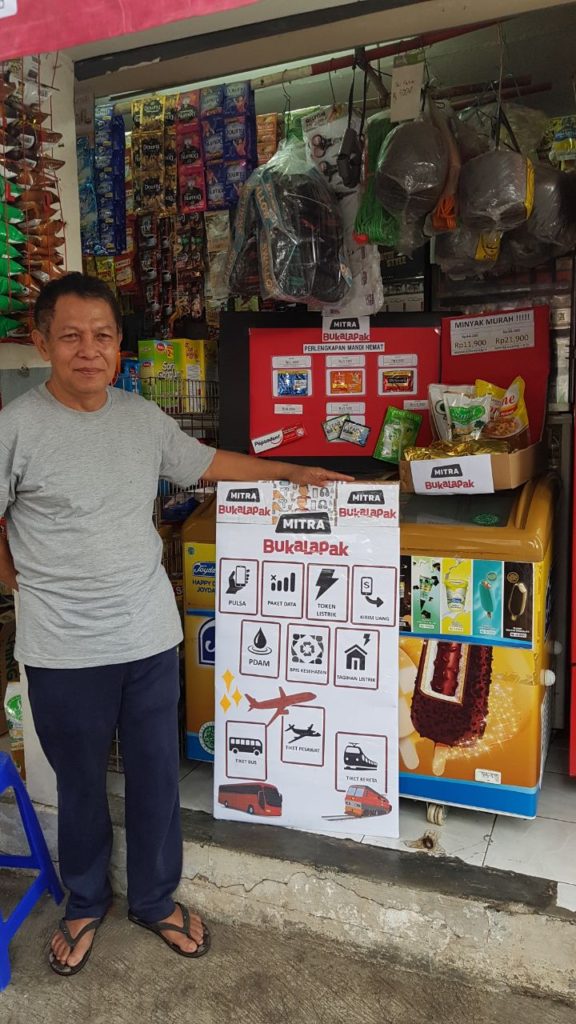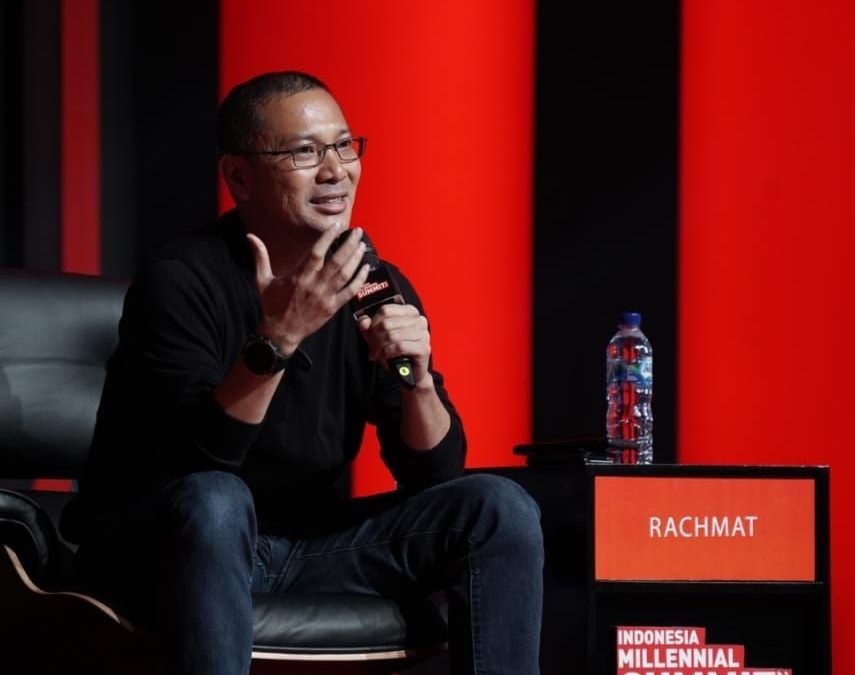Rachmat Kaimuddin may have been destined for the job he currently holds. A graduate from MIT and Stanford University, Kaimuddin’s early career led him to work for the Boston Consulting Group and several private equity firms and the International Finance Corporation before landing at local conglomerate Bosowa Group.
But as he tells the Indonesia Economic Forum in an exclusive interview, as the new chief executive officer of e-commerce marketplace platform Bukalapak.com, he feels most at home leading a tech company.
“I became CEO in January this year and it has been an interesting change from my previous work experience. I am technologically trained but after graduating from college, I worked in management, finance and investment but I always wanted to come back to tech,” said the 42-year old native of Makassar.
“I am a nerd at heart so leading Bukalapak.com is like coming home,” he added. “I truly believe in the mission and vision of Bukalapak as they are aligned to my own values.”
When he took over, his first task was to gain a better grip and understanding
of the company’s business model, its customers and stakeholders. But then Covid-19 hit Indonesia and the world and Kaimuddin and his team had to go into over drive to adjust to a fast changing business environment.
“Covid-19 changed a lot of things for us. In some ways it accelerated a lot of processes we had planned to introduce but we no longer have the luxury of meeting people physically and test our ideas. We had to hit the ground running,” he noted.
As he steers the company forward, Kaimuddin’s biggest task perhaps is to put it on a path to profitability. His goal, he said, is to build Bukalapak into an entity that will last 100 years. To this end, he has initiated a number of programs including working with banks and e-wallet companies to provide better financing solutions; improving logistics networks and providing capital to its merchants.
Bukalapak is already working with 12 logistics companies to ensure cheaper and faster delivery of goods purchased on its platforms and Kaimuddin intends to expand this aspect of the company’s operations rapidly.
“What we try to perfect is being a good and trusted intermediary to all our clients,” he noted. “This includes providing working capital to our merchants and keeping our eyes and ears open to new opportunities.”
With Covid-19 keeping more people at home, Bukalapak is also offering its platform to companies that offer training and self-help online programs. “Any form of activity that requires two partners to transact, we can play a role,” he added.
As Kaimuddin sees it, the company’s path to profitability is to continuously build its marketplace platform and to go beyond being an intermediary to just physical goods but also offer services such as finance, education, training, healthcare and others.
“Every year we have managed to grow our revenue and improve the profitability situation but we are not yet profitable,” he noted. “I will definitely tell the market when that happens. ”
As it grows its topline, it will also continue to raise fresh capital but Kaimuddin emphasized that raising capital must be done prudently and with clear objectives. “We don’t consider raising money as an achievement in itself. If we lose money, people will say we are burning cash so we must act prudently.”
Filling the huge shoes of the three co-founders, who have exited from active management of the ecommerce marketplace portal was never going to be an easy task for Kaimuddin, especially as the company transitions from pure startup business culture to a sustainable business entity.
The company has been laser focused on growing its merchant and consumer base even as it has looked to raise funds. Over the past three years, it has increased the number of merchants from 8 million to 11 million, with 40% comprising of local warungs, Indonesia’s version of mom and pop shops.

Photo from company’s website
According to Kaimuddin, Bukalapak has from the start strived to serve small and medium sized enterprises (SMEs) and the lower middle class consumer segment of the population but it soon realized that this segment was uncomfortable with transacting online.
With Covid-19 impacting consumer spending and behavior, Kaimuddin and his team have also pivoted in terms of the type of items offered for sale on the platform. Indonesian consumers are today buying items that provide comfort at home such as nicer pajamas rather than clothes for going out and looking good.
There has also been a sharp increase in the purchase of health and wellness products such as vitamins and herbal drinks as well as exercise equipment. Kaimuddin noted that the sale of bicycles in particular has been fast paced.
“I am a runner more than a biker but this trend is clearly evident,” he noted. “Consumers are much more cost conscious and saving more in what I call a shift towards hyper realism where function and price are paramount.”
A confluence of factors – the Covid-19 pandemic, changing consumer behavior, greater internet connectivity and online payment gateways – are driving the growth of e-commerce in Indonesia. In a recent report, management consulting company Redseer projected that Indonesia’s online retail gross merchandise value (GMV) will surpass India by the end of the year.
The report noted that Indonesia’s 2020 e-commerce GMV would reach US$40 billion, ranking the country third in the world, surpassing India’s GMV of US$38 billion.
Such growth will provide e-commerce players such as Bukalapak with the underpinnings to embark on long-term sustainable expansion and a path to profitability. The challenge for Bukalapak is thus internal rather than external, as recognized by Kaimuddin.
“A simple goal for us is to be a company that can last for 100 years. To achieve that goal we need to have strong systems, procedures and talent development. I have been asked to provide that transition and to build the organization as an entity,” he said.
Ten years after its founding, Bukalapak is now poised for its next level of growth as it moves into a more mature period of its lifecycle. With Kaimuddin at its helm, the startup is keeping to its core values even as it institutes lasting change. In October 2019, Bukalapak closed series F funding that raised its valuation to over US$2.5 billion (S$3.5 billion), allowing it to join the ranks of Indonesian unicorns. According to its September 2019 financials, Indonesian media conglomerate Emtek Group owns a 35.22% stake. Other investors include Alibaba subsidiary Ant Financial, Singapore sovereign wealth fund GIC and South Korea’s Mirae Asset-Naver Asia Growth Fund.

